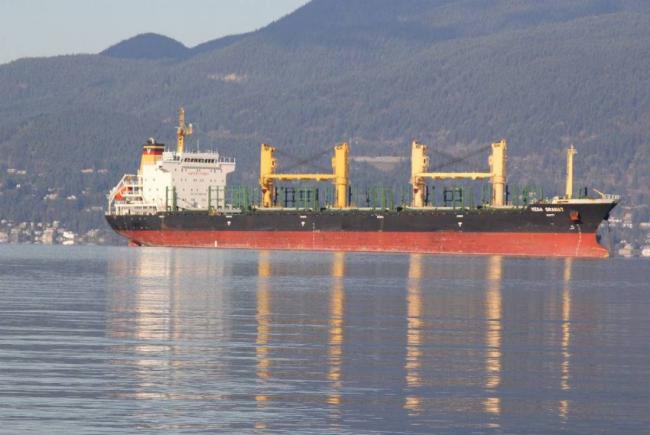Articles Menu

June 13th, 2019
An economist and former ICBC president and CEO has adopted a new approach to raise public awareness about a controversial pipeline project.
The story focuses on a minimum-wage female security guard who enjoys beach volleyball.
The book will be released for free online on Friday (June 14) at novel.robynallan.com.
“The best way to attack Ottawa’s fictional narrative on addressing climate change, along with its false pretence that Trans Mountain’s expansion is beneficial, was to write a novel,” Allan said in a news release. “I leave it to my characters to expose one falsehood after another as they discover how corroded our political and regulatory institutions have become.”
She has written on her website that she grew up in Vancouver and played at Jericho Beach and Spanish Banks.
Before the 2015 federal election, Justin Trudeau promised to change the National Energy Board process in connection with the Trans Mountain application.
But a year after the election, his cabinet still approved the project without that ever happening.
Allan, a former senior economist at B.C. Central Credit Union, has written critical articles and papers about this and other aspects of the Trans Mountain story.
She was an intervener at the National Energy Board before withdrawing from this process in 2015.
This came after she concluded that the board was intent on approving the Trans Mountain expansion regardless of evidence demonstrating that this wasn't in the public interest.
The National Energy Board's terms of reference excluded assessing the socioeconomic or environmental effects of the extraction of petroleum resources from Alberta.
In addition, the NEB didn't take into account greenhouse gas emissions associated with the use of these resources before it approved the Trans Mountain project.

According to a City of Vancouver evaluation, the pipeline would carry enough diluted bitumen to generate more than 70 million megatonnes of carbon dioxide equivalent emissions per year.
That's more than annual greenhouse gas emissions in all of British Columbia.
The most recent numbers from the Moana Loa Observatory in Hawaii show that the concentration of carbon dioxide equivalents in the atmosphere has exceeded 415 parts per million—the highest figure in 800,000 years.
"This review process is supposed to determine whether these oil pipeline projects are in the public interest," Allan wrote in 2013. "How can it effectively fulfill this task with a large part of the public interest concern excluded from their assessment?"
[Top photo: Oil tankers are often seen off the beaches of Spanish Banks, Jericho, Kitsilano, and English Bay.YOLANDE COLE]